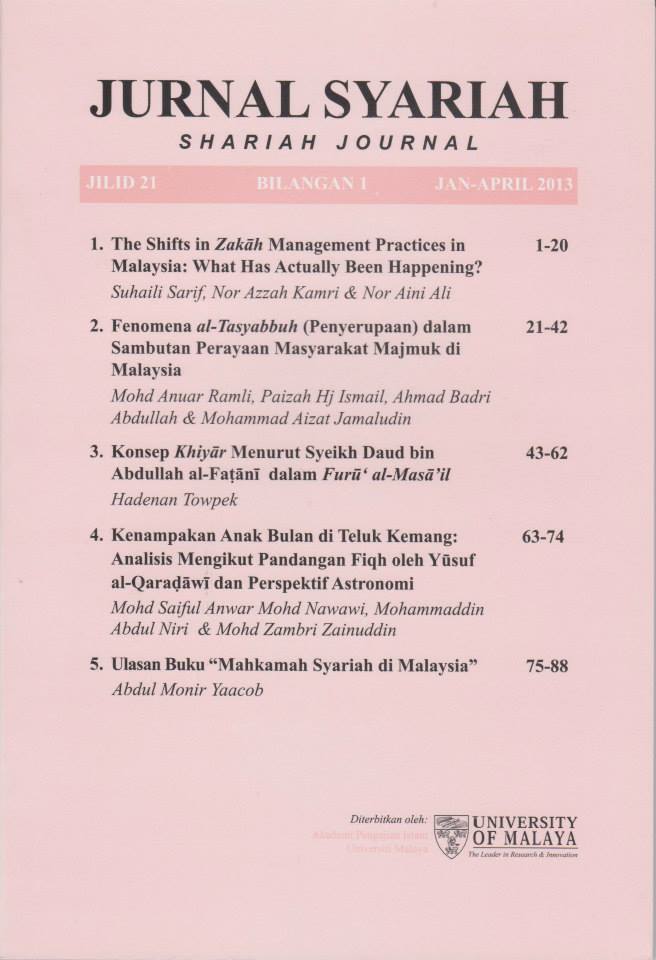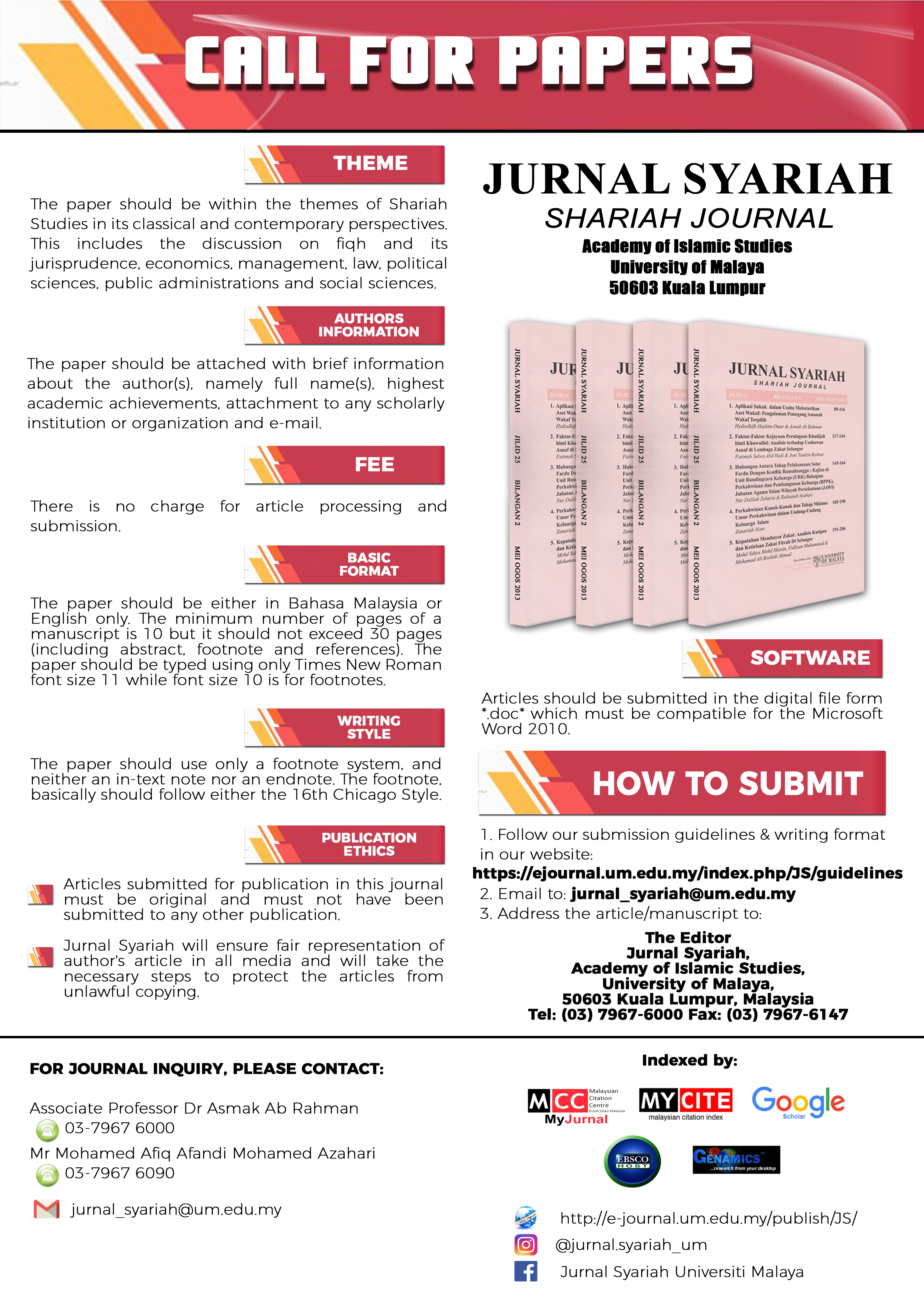KONSEP KHIYAR MENURUT SYEIKH DAUD BIN ABDULLAH AL-FATANI DALAM FURU‘ AL-MASA’IL
The Concept of Khiyar from Syeikh Daud bin Abdullah al-Fatani Perspective in Furu‘ al-Masa’il
Keywords:
Syeikh Daud al-Fatani, Furu‘ al-Masa’il, Fiqh al-Mu‘amalat, Bab al-KhiyarAbstract
The book of Furu‘ al-Masa’il by Sheikh Daud bin Abdullah al-Fatani (1131-1265H/1718-1847M), an Islamic religous work written in jawi, was considered a masterpiece in the field of Islamic jurisprudence at the time of his appearance in the nineteenth-century. This book contains almost all the titles in the field of Islamic jurisprudence including fiqh al-mu‘amalat or Islamic transactions. One of the titles covered in fiqh al-mu‘amalat, which is no less important, is the title of khiyar or option. Therefore, this article attempts to analyse the concept of khiyar as discussed by Sheikh Daud in this book. In analysing the corpus study, this article applies the content analysis methods through a thematic approach that is grouped under six subtitles: definition of khiyar, classification of khiyar, khiyar majlis or option during the meeting, khiyar syart or option of condition, khiyar ‘ayb or option of defect, and arsy or rebate. In addition, the approach draws a comparison with the views of major Shafi’i jurists. This article identifies the view of Syeikh Daud al-Fatani concerning the concept of khiyar, which is within the scope of discussion Shafi’i school of jurisprudence. This clearly indicates that the school of thought of Sheikh Daud al-Fatani was a continuation of a series of traditional Islamic sciences that draws on the family cluster and network of genealogy of jurisprudence references.
Downloads
Downloads
Published
How to Cite
Issue
Section
License

This work is licensed under a Creative Commons Attribution-NonCommercial 4.0 International License.
COPYRIGHT: All rights reserved. Not allowed to be reproduced any part of articles and contents of this journal in any form or by any way, whether electronic, mechanical, photocopying, recording or otherwise without permission in writing from the Chief Editor, Jurnal Syariah.



















